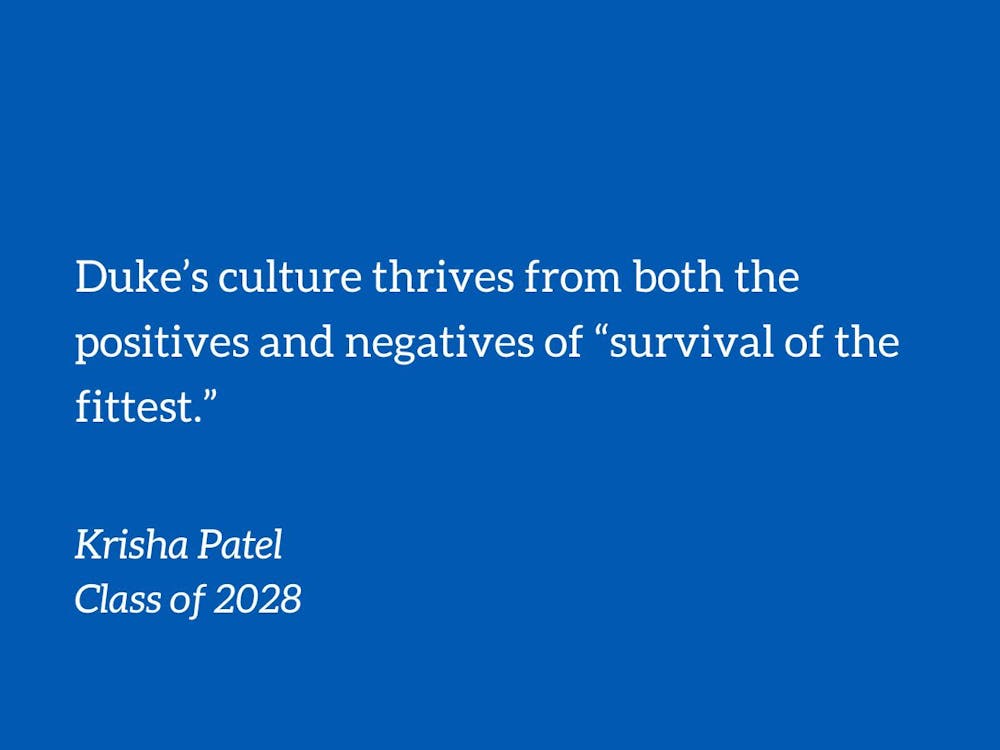Humans will never escape “survival of the fittest.” Evolutionary history shows that we consistently act in our own best interest. Even when humans aren’t meant to be at the top of the food chain, human development has disrupted the ecosystem to a point where the food chain no longer affects our survival. The competition that we once faced against other species has now been completely internalized, with wars, conflict and human disease being humankind’s biggest “predator.”
While our competitive nature has served as a huge driver in allowing humankind to become the intelligent species we are today, it has also led to consequential periods in our history. Time and time again, the majority has a tendency to take advantage of an oppressed minority to uphold the beliefs and values of the majority. We see such cases prevail today, with rights such as the right to an abortion and affirmative action being voted on by the majority and negatively impacting minority groups.
However, governments have also shifted to be freer, richer and less violent over time. Whether this is simply a product of our cognitive evolution or a product of institutionalized norms that protect the majority, there has been an overall increase in prosperity. It is both human nature to progress collectively and be ‘selfish.’
At Duke, this duality manifests in both the benefits of ambition — fostering innovation, collaboration and excellence — and its drawbacks, such as the perpetuation of privilege. Understanding this balance allows us to navigate competition in a way that enhances, rather than hinders, our community.
Duke’s culture thrives from both the positives and negatives of “survival of the fittest.” On the positive, our competitive nature serves as an important driver in allowing Duke to be the collaborative, unique and diverse community we see today. Our competitive nature encourages us to form study groups, engage in research and build networks. Our competitive nature pushes us to innovate and have an impact in the extracurriculars we are a part of. Our competitive nature has created the best student section in college basketball.
On the negative, the lack of socioeconomic diversity at Duke leaves privileged majority groups to drive the culture at Duke, worsening outcomes for minorities. Nearly half of students at Duke can afford to pay the $90,000+ it costs to attend Duke. Those same students often have access to opportunities in both academic and social spheres that perpetuate a narrative of what it means to be successful at Duke. Whether these opportunities are having connections that provide pathways to exclusive internships or having the finances to fully engage in Duke’s social scene, access to opportunities has shifted the standard at Duke.
So, how do we combat the negative aspects of competition while maintaining the strength of the Duke community?
Well, addressing humankind’s competitive, cutthroat nature without addressing our empathetic and altruistic nature would be disrespectful to who we are as humans. As humans, we have developed a level of intelligence in our evolutionary journey where we have been able to establish social norms and expectations for people to exhibit empathy and kindness. These principles didn’t spawn from nowhere; humans hold the innate ability to empathize with others.
We have various cognitive tools and neurotic structures that allow us to unconsciously read people’s faces and their intentions. And this framework is not in place so we can compete with people, but so we can empathize with them. Humans have evolved to exhibit empathetic behavior because it contributes to our genetic fitness.
In a series of studies known as the “Born Good” studies, a series of experiments were conducted to explore whether humans have an innate sense of morality, particularly in infancy or if moral behaviors are entirely learned through socialization. In one particular experiment, children of varying ages were given the task of choosing between two distributions of tokens divided among themselves and an unknown peer. Younger children tend to always choose the distribution that gave them relatively more tokens than their peers, even if this meant they would have more tokens if they had chosen the fairer distribution. Our innate internal competitive nature trumps our innate internal empathy at a young age. However, as they got older, the children decided to be more fair with the token distribution, even reaching a point where they gave more tokens to their opponent. Older children engaged in more prosocial behavior, or intentional action to help other individuals or groups.
Whether we would be able to grow out of our natural competitive nature without the institution of social norms remains unknown. Considering how we are gradually shifting towards a more egalitarian society, social norms have played a large role in allowing humankind to become more outwardly empathetic. We have successfully utilized social norms to take advantage of our internal egoistic character and push us to be kinder people. So even if our actions do not have altruistic motives, it is our actions, not our motives, that make society more just and free for all.
Like the older children in the “Born Good” studies, students at Duke also have the power to redistribute opportunities so that all students can find their place here. Whether this is by changing social norms to redefine what it means to be successful, creating mentorship and peer-support programs or utilizing our alumni network to help all students, the Duke community owes it to itself to break down barriers and build a culture where all students, regardless of background, can flourish.
Krisha Patel is a Trinity first-year.
Get The Chronicle straight to your inbox
Sign up for our weekly newsletter. Cancel at any time.

